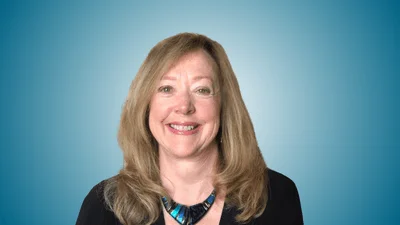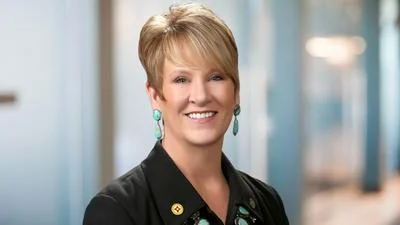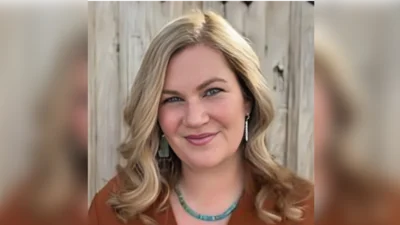Elizabeth Dickson, PhD, RN, an assistant professor at The University of New Mexico College of Population Health and the UNM College of Nursing, has become a key figure in addressing gaps in sexual health education for young people. Her journey began with questions about how students were learning about sexual health.
“When it comes to sexual health education, young people's voices need to be centered,” said Dickson. “I think too many adults think we have to make these decisions without talking to the people—the students—who they actually want to be working with.”
Dickson's career as a public health nurse spanned county, state, and federal agencies before she joined UNM in 2018. Her work in school-based health centers highlighted the lack of comprehensive sexual health education in schools.
“It was my work that I was doing in school spaces as a school nurse and as a provider in school-based health centers—that led me down the road to coming back and getting my PhD,” she explained.
Dickson initially joined the College of Nursing but later transitioned to the College of Population Health. This move allowed her to expand her research and collaborate with colleagues at the Center for Participatory Research.
“I straddled those worlds of nursing and public health anyway,” Dickson remarked. “So having a chance to come over and join the expansion of the College of Population Health that happened last year was really exciting.”
During her tenure with the New Mexico Department of Health, Dickson observed firsthand the lack of comprehensive sexual health education in schools. She noted that many students had their first conversation about sexual health only when she taught it.
Driven by this realization, Dickson pursued a PhD at UNM focusing on health policy. Her doctoral studies were supported by a fellowship from the Robert Wood Johnson Foundation.
Through her dissertation, Dickson conducted extensive research including 122 interviews with teachers, school nurses, and administrators across New Mexico. She investigated who was teaching sexual health education, how it was being taught, and identified barriers to its effective delivery.
“Quite honestly we didn't know who was teaching it,” she noted. “And if it was taught, we didn't know how it was being taught or what the expectations were.”
Her findings highlighted the need for standardized comprehensive sexual health education especially in rural communities where cultural factors influenced education. Students themselves expressed eagerness for better sexual health education.
In response, Dickson launched the Advancing Sexual Health Education Through Youth Engagement (SHE) project funded by a fellowship from the Moore Foundation through UC Davis. The project aims to train educators and school staff to improve their skills in teaching sexual health education.
“The really unique part of SHE is including a group of youth advisors who are helping to advise this project,” emphasized Dickson.
The project also focuses on creating a supportive community for practitioners to learn from each other. “The training for educators is about being able to comfortably talk about this subject matter,” she explained.
As SHE progresses, Dickson is optimistic about its impact: “I anticipate we're going to see lots of really positive increases in knowledge and skills.”
Dickson’s ultimate goal is enhancing schools’ capacity to provide effective sexual health education ensuring students receive necessary information and support.
“The big dream is to increase capacity for people in schools working with young people around sexual health education—to provide support and information so students can make informed decisions,” she stated.
“When it comes to sexual health education,” concluded Dickson, “young people's voices need to be centered... They are experts in their own lives.”









